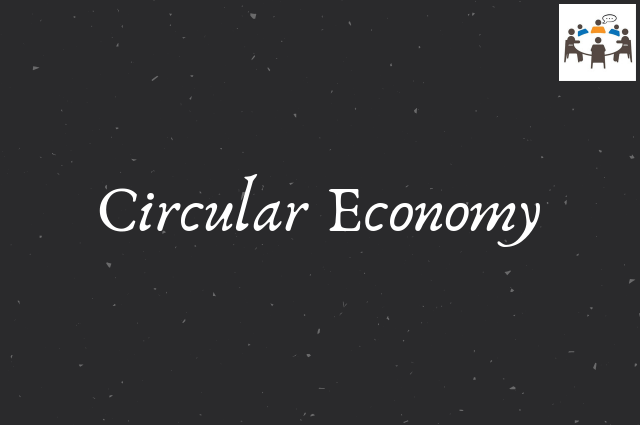By 2050, there will be 10 billion people on the planet. With the diminishing natural resources like oil, fresh water, etc. The question arises: will businesses last that long? Or, to go even further, will Humans survive it?
Fortunately, a solution has been found. Circular Economy is an economic model which maximizes the use of the materials extracted from nature. Each non-biodegradable material is used, reused, recycled and remade in order to reduce the negative impact on the environment. In contrast, countries mostly practice Linear Economy. In a Linear Economy, a simple path is followed by the products: extract raw materials, transform, sell, use and throw them away.
The resources we have with us are very limited. Every day, we consume in fossil fuels the equivalent of 2,600 years of accumulation of oil. Also, the linear economic model produces several tonnes of plastic. A study found that the amount of plastic produced since 1950 was equal to USD 100 million (the annual turnover of google). Waste production and resource depletion are too high to be sustainable in the current Linear Model.
The circular economy will effectively counter these problems. It ensures that each non-biodegradable product is reused, recycled and recast to the maximum extent possible. Studies show that a circular economy path to development could bring India annual benefits of ₹40 lakh crore (US$ 624 billion) in 2050 compared with the current development path – a benefit equivalent to 30% of India’s current GDP.
Several start-ups have emerged that are starting to provide alternatives to the current non-biodegradable items to make the economy more circular in its nature. Tipa, an Israeli startup, has created a flexible packaging material with the technical properties of conventional plastic, but 100 percent compostable. Algopack, a French company, is turning seaweed into furniture, without using oil, pesticides or fertilizers.
Not just startups but countries too have started turning towards a circular economy. China is the first country to legislate on adopting a circular economy in 2016. Several other countries will also follow suit in the future.
Conclusion :-
In conclusion, adopting a circular economy is the key to the sustainable development of countries, businesses and even humanity.
Your Turn…
What are your thoughts on this topic? Express your views through the comment section below. And subscribe to our blog to read answers to the trending GD topics.
Copyright @ Group Discussion Ideas.

